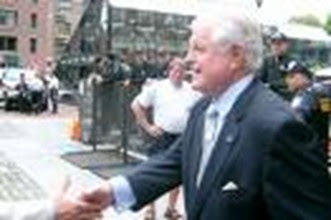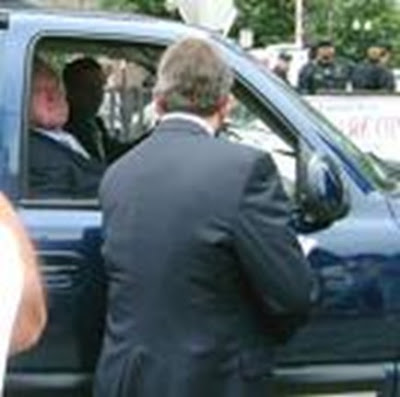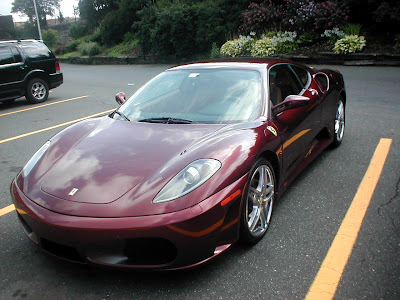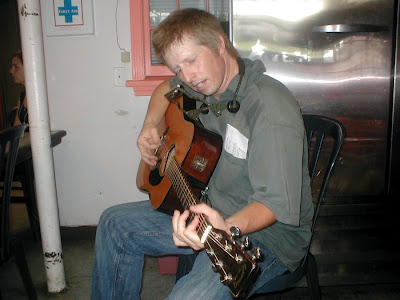At the High School of Commerce

Recently I was in Springfield, waiting for the bus in front of the noble High School of Commerce, which is where I graduated from. People who attended that school, at least from my era, are very insistent that the school always be referred to as "The High School of" and not "Commerce High" although the distinction may not be clear to non-Commerce graduates or younger people.
It dates to the time when the Springfield High Schools were divided up into schools with specific goals. There was Classical High, which focused on the liberal arts, Technical High, which featured technology and science, Cathedral High which offered a religious education and Trade High, for those seeking jobs in the trades. It was a model praised for its effectiveness and copied nationwide.
The High School of Commerce was the school for those who were going into fields related to business. Therefore, it was important that the name reveal what the school was all about - Commerce was not just what the school was called, but also its educational goal. The phrase "High School of Commerce" clearly identifies its primary purpose.
Sadly, the very successful division of schools by academic purpose was abolished in the 1980's. Today, there is no distinctive business related purpose behind the Commerce curriculum. Yet enough people still remember the original purpose of the school so that a reporter for the Springfield Newspapers told me that to this day, whenever a reporter (usually a rookie from out of town) mistakenly refers to "Commerce High," they still get angry phone calls from High School of Commerce graduates correcting them.
When I went to Commerce in the 1970's, the student body was predominantly African-American. Black people were attracted to Commerce in part because business is a field where you can overcome discrimination. As long as you have a good product and good service at a good price, you can make money no matter what your racial background, because no one discriminates against a good product at a good price.
The principal in my day was a gruff white guy named Phillip Sweeney. I remember he used to talk to the black students in a way no one would dare to do today. Sweeney would bluntly tell the black kids that the deck of life was stacked against them, something they no doubt already knew, but which the students and their parents were glad to hear a white man in authority admit.
Sweeney would tell the black students in frank terms that they would have to work harder, study more and fool around less than the white kids because that's what was required to overcome the hurdles of discrimination. Sweeney refused to allow anyone at Commerce to use racism as an excuse for failure, and the students and their parents loved him for it. Year after year the High School of Commerce was the number one school choice of the black community.
But eventually Sweeney retired and the school department got taken over by liberal Democrats who sneered at the concept of a "business school." Even Sweeney's legacy came under attack, with some self-proclaimed black leaders complaining that a school with a large black population should not be run by a white man. Besides, what good was a business education when every good leftist knew that socialism was the wave of the future? The business curriculum was dismantled and Commerce soon became a testing ground for every crackpot new educational theory that came down the pike. By the 1990's the High School of Commerce was considered the worst in the city, with a faculty member once sending me this tragic account of a typical day in the new Commerce.

Friday, Feb. 13th, the day before Valentine's, bouquets, balloons, chocolates, teddy bears and skippers were all over the hallways. Outside my classroom, a group of students hung out, kissed and fooled around. Some of them even threw themselves onto the window of my classroom door, making faces, sticking up their middle fingers and shouting obscenities. Most of the morning was like this. I called the office to report the chaos, but no one showed up to help. I opened the door and attempted to send the disruptive students away several times. This seemed to amuse them and provoked even more outrageous behavior, which excited them even more.
Finally it was my lunch break. I was walking upstairs when a boy, with a hood and a dark robe covering his entire body and face approached. He looked like a character from the movie, "The Lord of the Rings." Another student passed me and reported that my room had been blasted by raw eggs. I felt terrible. I rushed down to my classroom only to find the custodian, Bob Mulcahey, kneeling down and wiping off the eggs dripping down the glass from the door to the floor. He told me that not only had my room been targeted. There were egg whites and yolks everywhere in the hallway; on the student's lockers, on the walls and floor and on the door of the attendance officer's office. It was a disgusting mess, Bob told me, shaking his head, but he also assured me that it was not aimed at me personally.
A moment later, in the same hallway, there was a loud bang. A fist cracked the window of the classroom next to mine into fine lines like a spider web. One teenager fled the scene followed by a small group of others. A Quebec officer and an assistant principal chased after them.
This was not an extraordinary day in the High School of Commerce. Nothing was very different than previous days, except on this day there were fresh eggs. The day before, pepper spray in the boy's bathrooms prevented student access. Last month, students in the halls repeatedly discharged fire extinguishers. A bulletin board was set on fire forcing school evacuation. The school was evacuated again when a girl's room in the A building was set on fire. Small fires spring up all the time, so often that the school merely doused the fires and did not bother to report them to the fire marshall. Additionally, water fountains, bathroom fixtures and handrails have been ripped from the walls. One teacher on the first floor recently had his door kicked so hard that it cracked across the middle.
These events don't occur in isolation. Disorder is routine. A female student recently hit me as I was attempting to protect one girl from being viciously attacked by another. I have gone into the Principals office to protest an administrator's disciplinary decisions. I sent a student who was striking a cigarette lighter in front of a bulletin board to the office. For two days, the administrator had taken no action because I had not provided an eyewitness. Ulitmately, another eyewitness came forward, yet the punishment was minimal, in spite of a recent spate of fires. Of course, all my referrals for truants were left unattended due to "overwhelming problems in the hallway," as responded one administrator to my inquiry.
I've heard the school has improved considerably in recent years, but frankly it had no where to go but up. On the day I was there, on the sidewalk in front of Commerce someone had sprayed this message.

As I stood waiting for the bus I noticed that across the street that they have torn up the steps that used to be there and removed the historic monument to General Knox that was there.

I guess they were removed as part of the renovations underway on State Street. This is what the historic monument looked like.

I hope the monument is returned to that spot, but of course the old steps will not be. That's a shame. Those steps were the primary pre-school socializing spot for Commerce students getting off the bus. Generations of future husbands met future wives on those steps, plus all the gossip and discussions of the teenage world were carried on from the early years of the last century right up until the steps were removed earlier this year. I guess the planners behind the renovations didn't realize the historic and nostalgic meaning of those steps.
One of the big controversies of my time at Commerce was over smoking. Students were always smoking cigarettes in the bathrooms, with all the mess and smell that creates, until the student council, to which I had somehow been elected, suggested that there ought to be a place outside for the students to smoke. This was in the years before the health nazis had made smoking outside practically illegal.
Even students like myself, who didn't smoke, favored this policy, if only because it seemed like we were winning some sort of victory over the dispproving adults. Many of those adults pointed out the obvious truth that having an official smoking spot might encourage students to smoke and therefore damage their health. We bristled with contempt at such a common sense observation. Our teenage spirits wanted to be free, and somehow drawing toxic chemicals into our lungs like dumb adults do had become a symbol of freedom.
Amazingly, the adults eventually caved in. Reluctantly, Sweeney designated a small area of the front lawn as an official smoking area. I still remember the first day of our new freedom, and how I bummed a cigarette off my friend Rick Martinez even though I didn't smoke at the time. Not inhaling the cigarette, lest I cough to death, I waved the cigarette around in my hand, looking with rebellious contempt at the assistant principal who had once haunted the Men's Room looking for illicit smoking, but who now had to watch helplessly as we stood defiantly on our official smoking spot. Here is that smoking spot as it appears today.

Hey, where did all those trees come from? After we graduated, the smoking spot didn't last long. After we troublemakers graduated, it was abolished. As if to make it impossible for it to be revived, trees were planted. Those trees are pretty big now after more than three decades. Only the ghosts of my departed classmates hang out there now. I hope they didn't die of lung cancer.
Tiger's Den
Can you believe these photos released of Tiger Woods' primary residence? I knew I should've followed Rick Martinez's advice when he urged me to join the Commerce Golf Club.




















































